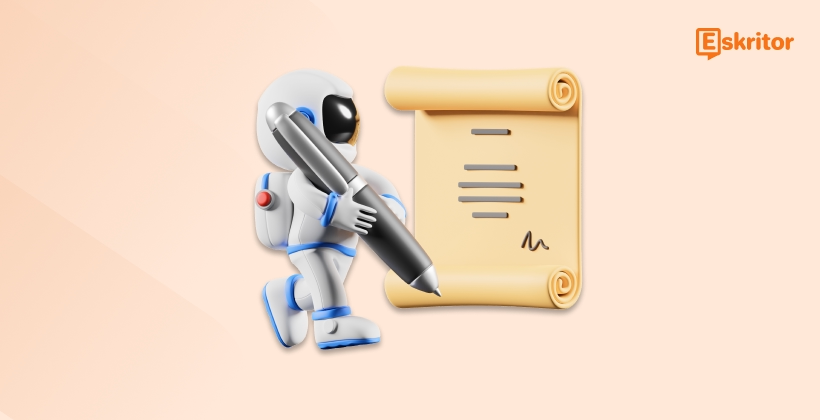How AI Writers Are Transforming Content Creation
How AI Writers Are Transforming Content Creation
Blog Article
The Future of AI Writing Technology Explained
As artificial intelligence (AI) evolves, it remains to revolutionize exactly how we strategy modern modifying practices. From grammar modification tools to advanced material era systems, ai grammar checker is reshaping just how writers, writers, and designers refine their work. That website explores the role AI represents in modern editing and the impact it's across industries.

AI-Powered Methods Major the Demand
AI-powered methods have grown to be an crucial section of modifying workflows. Pc software fueled by natural language processing (NLP) and machine learning is able to do projects like syntax checks, stylistic suggestions, and sentence restructuring with unbelievable rate and accuracy.
As an example, AI-based grammar checkers can identify mistakes that the eye may overlook, such as subject-verb contract problems or dropped modifiers. Equally, style innovations made by AI ensure that tone and movement arrange with the intended audience, that will be important for qualified editors.
These tools are not only limited to standard grammar corrections. They are designed for improving readability, transforming passive voice to productive voice, and actually paraphrasing whole paragraphs without changing the meaning.
Efficiency Matches Time Savings
Studies show that the utilization of AI instruments may minimize editing time by around 30%. As opposed to poring around every word manually, authors may concentration their attempts on creative and strategic aspects of content. That shift enables experts to manage higher amounts of text in faster periods, which will be especially useful for industries like writing and electronic marketing.
Moreover, predictive AI characteristics may spotlight continuing mistakes, supporting authors enhance their abilities around time. For agencies, this means fewer sources spent on changes and more refined components from the start.
Increasing Availability and Globalization
AI's role in contemporary editing extends beyond efficiency. Advanced interpretation and localization methods allow creators to change content seamlessly for global readers, deteriorating language barriers with precision. This engineering assures that exactly the same information may resonate with cultures world wide while retaining their authenticity.
AI also raises inclusivity criteria by increasing supply in content. For instance, methods may recognize possibly non-inclusive language and suggest alternatives. That capacity allows publishers to refine publishing so it resonates with varied audiences.

Impressive a Harmony Between AI and Individual Creativity
While AI excels in rate and reliability, it doesn't replace individual editors. Models frequently absence the capability to interpret nuance, feeling, or social situation fully. The best system mixes AI's efficiency with individual creativity and understanding, resulting in really extraordinary work.
By leveraging these technologies in contemporary editing practices, creators and publishers alike can produce top quality material that aligns with the fast-paced needs of today's electronic world. AI may be the potential of editing, however the human touch will always be needed for storytelling and connection. Report this page